The Sign of Three: Dupin, Holmes, Peirce Art and Beauty in the Middle Ages Umberto Eco Hugh BredinIn this authoritative, lively book, the celebrated Italian novelist and philosopher Umberto Eco presents a learned summary of medieval aesthetic ideas. Juxtaposing theology and science, poetry and mysticism, Eco explores the relationship that existed between the aesthetic theories and the artistic experience and practice of medieval culture.The Aesthetics of Thomas Aquinas Umberto EcoThe well-known Italian semiotician and novelist Umberto Eco discloses for the first time to English-speaking readers the unsuspected richness, breadth, complexity, and originality of the aesthetic theories advanced by the influential medieval thinker Thomas Aquinas, heretofore known principally as a scholastic theologian. Inheriting his basic ideas and conceptions of art and beauty from the classical world, Aquinas transformed or modified these ideas in the light of Christian theology and of developments in metaphysics and optics during the thirteenth century.
Setting the stage with an account of the vivid aesthetic and artistic sensibility that flourished in medieval times, Eco examines Aquinas's conception of transcendental beauty, his theory of aesthetic perception or visio, and his account of the three conditions of beauty—integrity, proportion, and clarity—that, centuries later, emerged again in the writings of the young James Joyce. He examines the concrete application of these theories in Aquinas's reflections on God, mankind, music, poetry, and scripture. He discusses Aquinas's views on art and compares his poetics with Dante's. In a final chapter added to the second Italian edition, Eco examines how Aquinas's aesthetics came to be absorbed and superseded in late medieval times and draws instructive parallels between Thomistic methodology and contemporary structuralism. As the only book-length treatment of Aquinas's aesthetics available in English, this volume should interest philosophers, medievalists, historians, critics, and anyone involved in poetics, aesthetics, or the history of ideas.Apocalypse Postponed: Essays by Umberto Eco Umberto Eco, Robert LumleyAn erudite and witty collection of Umberto Eco's essays on mass culture from the 1960s through the 1980s, including major pieces which have not been translated into English before. The discussion is framed by opposing characterizations of current intellectuals as apocalyptic and opposed to all mass culture, or as integrated intellectuals, so much a part of mass culture as to be unaware of serving it. Organized in four main parts, "Mass Culture: Apocalypse Postponed," "Mass Media and the Limits of Communication," "The Rise and Fall of Counter-Cultures," and "In Search of Italian Genius," Eco looks at a variety of topics and cultural productions, including the world of Charlie Brown, distinctions between highbrow and lowbrow, the future of literacy, Chinese comic strips, whether countercultures exist, Fellini's Ginger and Fred, and the Italian genius industry.Belief or Nonbelief?: A Confrontation Umberto Eco, Carlo Maria MartiniOne is the beloved author of The Name of the Rose, a celebrated scholar, philosopher, and self-declared secularist; the other is a preeminent clergyman and a respected expert on the New Testament. In this intellectually stimulating dialogue, often adversarial but always amicable, these two great men, who stand on opposite sides of the church door, discuss some of the most controversial issues of our day, including the apocalypse, abortion, women in the clergy, and ethics. As we voyage onward into the new millennium, they frame a debate about matters that have already begun to rage, always aware of the gulf between belief and nonbelief that separates them, constantly probing and challenging, but also respectful of the other’s viewpoint. For believers and nonbelievers alike, the result is both edifying and illuminating. “Their correspondence,” writes Professor Harvey Cox in his introduction, “lifts the possibility of intelligent conversation on religion to a new level.”The Bomb and the General Umberto Eco, Juvenile Collection (Library of Congress), Eugenio CarmiAn important general collects atoms and puts them into bombs that he stores in his attic in preparation for war, but the atoms prefer to live in harmony and sneak out. Full-color illustrations.The Book of Legendary Lands Umberto EcoA fascinating illustrated tour of the fabled places in literature and folklore that have awed, troubled, and eluded us through the ages. From the epic poets of antiquity to contemporary writers of science fiction, from the authors of the Holy Scriptures to modern raconteurs of fairy tales, writers and storytellers through the ages have invented imaginary and mythical lands, projecting onto them all of our human dreams, ideals, and fears. In the tradition of his acclaimed History of Beauty, On Ugliness, and The Infinity of Lists, renowned writer and cultural critic Umberto Eco leads us on a beautifully illustrated journey through these lands of myth and invention, showing us their inhabitants, the passions that rule them, their heroes and antagonists, and, above all, the importance they hold for us. He explores this human urge to create such places, the utopias and dystopias where our imagination can confront things that are too incredible or challenging for our limited real world. Illuminated with more than 300 color images, The Book of Legendary Lands is both erudite and thoroughly enjoyable, bringing together disparate elements of our shared literary legacy in a way only Umberto Eco can. Homer’s poems and other ancient and medieval texts are presented side by side with Gulliver’s Travels and Alice in Wonderland; Tolkien shares space with Marco Polo’s Books of the Marvels of the World; films complement poems, and comics inform novels. Together, these stories have influenced the sensibilities and worldview of all of us.Chronicles of a Liquid Society Umberto EcoA posthumous collection of essays about the modern world from one of Europe’s greatest, and best-selling, literary figures
Umberto Eco was an international cultural superstar. In this, his last collection, the celebrated essayist and novelist observes the changing world around him with irrepressible curiosity and profound wisdom. He sees with fresh eyes the upheaval in ideological values, the crises in politics, and the unbridled individualism that have become the backdrop of our lives—a “liquid” society in which it’s not easy to find a polestar, though stars and starlets abound.
In these pieces, written for his regular column in L’Espresso magazine, Eco brings his dazzling erudition and keen sense of the everyday to bear on topics such as popular culture and politics, being seen, conspiracies, the old and the young, new technologies, mass media, racism, and good manners. It is a final gift to his reader—astute, witty, and illuminating.Confessions of a Young Novelist Umberto EcoUmberto Eco published his first novel, The Name of the Rose, in 1980, when he was nearly fifty. In these “confessions,” the author, now in his late seventies, looks back on his long career as a theorist and his more recent work as a novelist, and explores their fruitful conjunction.
He begins by exploring the boundary between fiction and nonfiction—playfully, seriously, brilliantly roaming across this frontier. Good nonfiction, he believes, is crafted like a whodunnit, and a skilled novelist builds precisely detailed worlds through observation and research. Taking us on a tour of his own creative method, Eco recalls how he designed his fictional realms. He began with specific images, made choices of period, location, and voice, composed stories that would appeal to both sophisticated and popular readers. The blending of the real and the fictive extends to the inhabitants of such invented worlds. Why are we moved to tears by a character’s plight? In what sense do Anna Karenina, Gregor Samsa, and Leopold Bloom “exist”?
At once a medievalist, philosopher, and scholar of modern literature, Eco astonishes above all when he considers the pleasures of enumeration. He shows that the humble list, the potentially endless series, enables us to glimpse the infinite and approach the ineffable. This “young novelist” is a master who has wise things to impart about the art of fiction and the power of words. (20110110)Experiences in Translation Umberto EcoIn this book Umberto Eco argues that translation is not about comparing two languages, but about the interpretation of a text in two different languages, thus involving a shift between cultures. An author whose works have appeared in many languages, Eco is also the translator of Gérard de Nerval's Sylvie and Raymond Queneau's Exercices de style from French into Italian. In Experiences in Translation he draws on his substantial practical experience to identify and discuss some central problems of translation. As he convincingly demonstrates, a translation can express an evident deep sense of a text even when violating both lexical and referential faithfulness. Depicting translation as a semiotic task, he uses a wide range of source materials as illustration: the translations of his own and other novels, translations of the dialogue of American films into Italian, and various versions of the Bible. In the second part of his study he deals with translation theories proposed by Jakobson, Steiner, Peirce, and others.
Overall, Eco identifies the different types of interpretive acts that count as translation. An enticing new typology emerges, based on his insistence on a common-sense approach and the necessity of taking a critical stance.Five Moral Pieces Umberto EcoEmbracing the web of multiculturalism that has become a fact of contemporary life from New York to New Delhi, Eco argues that we are more connected to people of other traditions and customs than ever before, making tolerance the ultimate value in today's world. What good does war do in a world where the flow of goods, services, and information is unstoppable and the enemy is always behind the lines?
In the most personal of the essays, Eco recalls experiencing liberation from fascism in Italy as a boy, and examines the various historical forms of fascism, always with an eye toward such ugly manifestations today. And finally, in an intensely personal open letter to an Italian cardinal, Eco reflects on a question underlying all the reflections in the book—what does it mean to be moral or ethical when one doesn't believe in God?From the Tree to the Labyrinth: Historical Studies on the Sign and Interpretation Umberto EcoThe way we create and organize knowledge is the theme of From the Tree to the Labyrinth, a major achievement by one of the world's foremost thinkers on language and interpretation. Umberto Eco begins by arguing that our familiar system of classification by genus and species derives from the Neo-Platonist idea of a "tree of knowledge." He then moves to the idea of the dictionary, which—like a tree whose trunk anchors a great hierarchy of branching categories—orders knowledge into a matrix of definitions. In Eco's view, though, the dictionary is too rigid: it turns knowledge into a closed system. A more flexible organizational scheme is the encyclopedia, which—instead of resembling a tree with finite branches—offers a labyrinth of never-ending pathways. Presenting knowledge as a network of interlinked relationships, the encyclopedia sacrifices humankind's dream of possessing absolute knowledge, but in compensation we gain the freedom to pursue an infinity of new connections and meanings.
Moving effortlessly from analyses of Aristotle and James Joyce to the philosophical difficulties of telling dogs from cats, Eco demonstrates time and again his inimitable ability to bridge ancient, medieval, and modern modes of thought. From the Tree to the Labyrinth is a brilliant illustration of Eco's longstanding argument that problems of interpretation can be solved only in historical context.History of Beauty Umberto EcoHow to Travel With a Salmon & Other Essays Umberto EcoOnce a columnist for an Italian literary magazine, Eco now shares his acute and highly entertaining sense of the absurd in modern life in these essays about militarism, computerese, cowboy and Indian movies, art criticism, librarians, semiotics, and much more—including himself.How to Write a Thesis Umberto EcoBy the time Umberto Eco published his best-selling novel The Name of the Rose, he was one of Italy's most celebrated intellectuals, a distinguished academic and the author of influential works on semiotics. Some years before that, in 1977, Eco published a little book for his students, How to Write a Thesis, in which he offered useful advice on all the steps involved in researching and writing a thesis — from choosing a topic to organizing a work schedule to writing the final draft. Now in its twenty-third edition in Italy and translated into seventeen languages, How to Write a Thesis has become a classic. Remarkably, this is its first, long overdue publication in English.
Eco's approach is anything but dry and academic. He not only offers practical advice but also considers larger questions about the value of the thesis-writing exercise. How to Write a Thesis is unlike any other writing manual. It reads like a novel. It is opinionated. It is frequently irreverent, sometimes polemical, and often hilarious. Eco advises students how to avoid "thesis neurosis" and he answers the important question "Must You Read Books?" He reminds students "You are not Proust" and "Write everything that comes into your head, but only in the first draft." Of course, there was no Internet in 1977, but Eco's index card research system offers important lessons about critical thinking and information curating for students of today who may be burdened by Big Data.
How to Write a Thesis belongs on the bookshelves of students, teachers, writers, and Eco fans everywhere. Already a classic, it would fit nicely between two other classics: Strunk and White and The Name of the Rose.
This MIT Press edition will be available in three different cover colors.
ContentsThe Definition and Purpose of a ThesisChoosing the TopicConducting ResearchThe Work Plan and the Index CardsWriting the ThesisThe Final DraftThe Infinity of Lists: An Illustrated Essay Umberto EcoBest-selling author and philosopher Umberto Eco is currently resident at the Louvre, and his chosen theme of study is "the vertigo of lists." Reflecting on this enormous trove of human achievements, in his lyrical intellectual style he has embarked on an investigation of the phenomenon of cataloging and collecting. This book, featuring lavish reproductions of artworks from the Louvre and other world-famous collections, is a philosophical and artistic sequel to Eco’s recent acclaimed books, History of Beauty and On Ugliness, books in which he delved into the psychology, philosophy, history, and art of human forms. Eco is a modern-day Diderot, and here he examines the Western mind’s predilection for list-making and the encyclopedic. His central thesis is that in Western culture a passion for accumulation is recurring: lists of saints, catalogues of plants, collections of art. This impulse has recurred through the ages from music to literature to art. Eco refers to this obsession itself as a "giddiness of lists" but shows how in the right hands it can be a "poetics of catalogues." From medieval reliquaries to Andy Warhol’s compulsive collecting, Umberto Eco reflects in his inimitably inspiring way on how such catalogues mirror the spirit of their times.Inventing the Enemy: Essays Umberto EcoInventing the Enemy covers a wide range of topics on which Umberto Eco has written and lectured for the past ten years, from a disquisition on the theme that runs through his most recent novel, The Prague Cemetery—every country needs an enemy, and if it doesn’t have one, must invent it—to a discussion of ideas that have inspired his earlier novels. Along the way, he takes us on an exploration of lost islands, mythical realms, and the medieval world. Eco also sheds light on the indignant reviews of James Joyce’s Ulysses by fascist journalists of the 1920s and 1930s, and provides a lively examination of Saint Thomas Aquinas’s notions about the soul of an unborn child, censorship, violence, and WikiLeaks. These are essays full of passion, curiosity, and obsessions by one of the world’s most esteemed scholars and critically acclaimed, best-selling novelists.Kant and the Platypus: Essays on Language and Cognition Umberto EcoThe Limits of Interpretation Umberto Eco"Eco’s essays read like letters from a friend, trying to share something he loves with someone he likes.... Read this brilliant, enjoyable, and possibly revolutionary book." ―George J. Leonard, San Francisco Review of Books
"... a wealth of insight and instruction." ―J. O. Tate, National Review
"If anyone can make [semiotics] clear, it's Professor Eco.... Professor Eco's theme deserves respect; language should be used to communicate more easily without literary border guards." ―The New York Times
"The limits of interpretation mark the limits of our world. Umberto Eco's new collection of essays touches deftly on such matters." ―Times Literary Supplement
"It is a careful and challenging collection of essays that broach topics rarely considered with any seriousness by literary theorists." ―Diacritics
Umberto Eco focuses here on what he once called "the cancer of uncontrolled interpretation"―that is, the belief that many interpreters have gone too far in their domination of texts, thereby destroying meaning and the basis for communication.Mouse Or Rat Umberto Eco'Translation is always a shift,not between two languages but between two cultures. A translator must take into account rules that are not strictly linguistic but, broadly speaking, cultural.' Umberto Eco is of the world's most brilliant and entertaining writers on literature and language. In this accessible and dazzling study, he turns his eye on the subject of translations and the problems the differences between cultures can cause. The book is full of little gems about mistranslations and misunderstandings.For example when you put 'Studies in the logic of Charles Sanders Peirce' through an internet translation machine, it becomes 'Studies in the logic of the Charles of sandpaper grinding machines Peirce'. In Italian 'ratto' has no connotation of 'contemptible person' but denotes speed ('you dirty rat' could take on a whole new meaning!) What could be a weighty subject is never dull, fired by Eco's immense wit and erudition, providing an entertaining read that illuminates the process of negotation that all translators must make.Numero Zero Umberto EcoFrom the best-selling author of The Name of the Rose and The Prague Cemetery, a novel about the murky world of media politics, conspiracy, and murder
A newspaper committed to blackmail and mud slinging, rather than reporting the news.
A paranoid editor, walking through the streets of Milan, reconstructing fifty years of history against the backdrop of a plot involving the cadaver of Mussolini's double.
The murder of Pope John Paul I, the CIA, red terrorists handled by secret services, twenty years of bloodshed, and events that seem outlandish until the BBC proves them true.
A fragile love story between two born losers, a failed ghost writer, and a vulnerable girl, who specializes in celebrity gossip yet cries over the second movement of Beethoven’s Seventh. And then a dead body that suddenly appears in a back alley in Milan.
Set in 1992 and foreshadowing the mysteries and follies of the following twenty years, Numero Zero is a scintillating take on our times from the best-selling author of The Name of the Rose and Foucault's Pendulum.On the Shoulders of Giants Umberto EcoA posthumous collection of essays by one of our greatest contemporary thinkers that provides a towering vision of Western culture.
In Umberto Eco’s first novel, The Name of the Rose, Nicholas of Morimondo laments, “We no longer have the learning of the ancients, the age of giants is past!” To which the protagonist, William of Baskerville, replies: “We are dwarfs, but dwarfs who stand on the shoulders of those giants, and small though we are, we sometimes manage to see farther on the horizon than they.”
On the Shoulders of Giants is a collection of essays based on lectures Eco famously delivered at the Milanesiana Festival in Milan over the last fifteen years of his life. Previously unpublished, the essays explore themes he returned to again and again in his writing: the roots of Western culture and the origin of language, the nature of beauty and ugliness, the potency of conspiracies, the lure of mysteries, and the imperfections of art. Eco examines the dynamics of creativity and considers how every act of innovation occurs in conversation with a superior ancestor.
In these playful, witty, and breathtakingly erudite essays, we encounter an intellectual who reads comic strips, reflects on Heraclitus, Dante, and Rimbaud, listens to Carla Bruni, and watches Casablanca while thinking about Proust. On the Shoulders of Giants reveals both the humor and the colossal knowledge of a contemporary giant.On Ugliness Umberto EcoIn the mold of his acclaimed History of Beauty, renowned cultural critic Umberto Eco’s On Ugliness is an exploration of the monstrous and the repellant in visual culture and the arts. What is the voyeuristic impulse behind our attraction to the gruesome and the horrible? Where does the magnetic appeal of the sordid and the scandalous come from? Is ugliness also in the eye of the beholder? Eco’s encyclopedic knowledge and captivating storytelling skills combine in this ingenious study of the Ugly, revealing that what we often shield ourselves from and shun in everyday life is what we’re most attracted to subliminally. Topics range from Milton’s Satan to Goethe’s Mephistopheles; from witchcraft and medieval torture tactics to martyrs, hermits, and penitents; from lunar births and disemboweled corpses to mythic monsters and sideshow freaks; and from Decadentism and picturesque ugliness to the tacky, kitsch, and camp, and the aesthetics of excess and vice. With abundant examples of painting and sculpture ranging from ancient Greek amphorae to Bosch, Brueghel, and Goya among others, and with quotations from the most celebrated writers and philosophers of each age, this provocative discussion explores in-depth the concepts of evil, depravity, and darkness in art and literature.The Open Work Umberto EcoMore than twenty years after its original appearance in Italian, The Open Work remains significant for its powerful concept of "openness"—the artist's decision to leave arrangements of some constituents of a work to the public or to chance—and for its striking anticipation of two major themes of contemporary literary theory: the element of multiplicity and plurality in art, and the insistence on literary response as an interactive process between reader and text. The questions Umberto Eco raises, and the answers he suggests, are intertwined in the continuing debate on literature, art, and culture in general.
This entirely new edition, edited for the English-language audience with the approval of Eco himself, includes an authoritative introduction by David Robey that explores Eco's thought at the period of The Open Work, prior to his absorption in semiotics. The book now contains key essays on Eco's mentor Luigi Pareyson, on television and mass culture, and on the politics of art. Harvard University Press will publish separately and simultaneously the extended study of James Joyce that was originally part of The Open Work, entitled The Aesthetics of Chaosmos: The Middle Ages of James Joyce. The Open Work explores a set of issues in aesthetics that remain central to critical theory, and does so in a characteristically vivid style. Eco's convincing manner of presenting ideas and his instinct for the lively example are threaded compellingly throughout. This book is at once a major treatise in modern aesthetics and an excellent introduction to Eco's thought.The Search for the Perfect Language Umberto EcoThe idea that there once existed a language which perfectly and unambiguously expressed the essence of all possible things and concepts has occupied the minds of philosophers, theologians, mystics and others for at least two millennia. This is an investigation into the history of that idea and of its profound influence on European thought, culture and history.
From the early Dark Ages to the Renaissance it was widely believed that the language spoken in the Garden of Eden was just such a language, and that all current languages were its decadent descendants from the catastrophe of the Fall and at Babel. The recovery of that language would, for theologians, express the nature of divinity, for cabbalists allow access to hidden knowledge and power, and for philosophers reveal the nature of truth. Versions of these ideas remained current in the Enlightenment, and have recently received fresh impetus in attempts to create a natural language for artificial intelligence.
The story that Umberto Eco tells ranges widely from the writings of Augustine, Dante, Descartes and Rousseau, arcane treatises on cabbalism and magic, to the history of the study of language and its origins. He demonstrates the initimate relation between language and identity and describes, for example, how and why the Irish, English, Germans and Swedes - one of whom presented God talking in Swedish to Adam, who replied in Danish, while the serpent tempted Eve in French - have variously claimed their language as closest to the original. He also shows how the late eighteenth-century discovery of a proto-language (Indo-European) for the Aryan peoples was perverted to support notions of racial superiority.
To this subtle exposition of a history of extraordinary complexity, Umberto Eco links the associated history of the manner in which the sounds of language and concepts have been written and symbolized. Lucidly and wittily written, the book is, in sum, a tour de force of scholarly detection and cultural interpretation, providing a series of original perspectives on two thousand years of European History.
The paperback edition of this book is not available through Blackwell outside of North America.Serendipities: Language and Lunacy Umberto EcoSix Walks in the Fictional Woods Umberto EcoIn this exhilarating book, we accompany Umberto Eco as he explores the intricacies of fictional form and method. Using examples ranging from fairy tales and Flaubert, Poe and Mickey Spillane, Eco draws us in by means of a novelist's techniques, making us his collaborators in the creation of his text and in the investigation of some of fiction's most basic mechanisms.Talking of Joyce Umberto Eco, Liberato Santoro-Brienza, J. MaysJoyce preferred to speak Italian at home so it is no surprise to find two Italian scholars lecturing and writing about James Joyce in English. This book contains lectures on Joyce by Umberto Eco and Liberato Santoro-Brienza.The Mysterious Flame of Queen Loana Umberto EcoThe Name of the Rose Umberto Eco(Book Jacket Status: Jacketed)
A spectacular best seller and now a classic, The Name of the Rose catapulted Umberto Eco, an Italian professor of semiotics turned novelist, to international prominence. An erudite murder mystery set in a fourteenth-century monastery, it is not only a gripping story but also a brilliant exploration of medieval philosophy, history, theology, and logic.
In 1327, Brother William of Baskerville is sent to investigate a wealthy Italian abbey whose monks are suspected of heresy. When his mission is overshadowed by seven bizarre deaths patterned on the book of Revelation, Brother William turns detective, following the trail of a conspiracy that brings him face-to-face with the abbey’s labyrinthine secrets, the subversive effects of laughter, and the medieval Inquisition. Caught in a power struggle between the emperor he serves and the pope who rules the Church, Brother William comes to see that what is at stake is larger than any mere political dispute–that his investigation is being blocked by those who fear imagination, curiosity, and the power of ideas.
The Name of the Rose offers the reader not only an ingeniously constructed mystery—complete with secret symbols and coded manuscripts—but also an unparalleled portrait of the medieval world on the brink of profound transformation.This is Not the End of the Book Umberto EcoThe perfect gift for book lovers: a beautifully designed hardcover in which two of the world's great men have a delightfully rambling conversation about the future of the book in the digital era, and decide it is here to stay.
These days it is almost impossible to get away from discussions of whether the book will survive the digital revolution. Blogs, tweets and newspaper articles appear daily on the subject, many of them repetitive, most of them admitting they don't know what will happen. Amidst the twittering, the thoughts of Jean-Claude Carrière and Umberto Eco come as a breath of fresh air. There are few people better placed to discuss the past, present and future of the book. Both of them avid book collectors with a deep understanding of history, they have explored through their work, both written and visual, the many and varied ways in which ideas have been represented through the ages.
This beautifully produced book, an object of desire in itself, is the transcription of a long conversation between the two men in which they discuss a vast range of subjects, from what can be defined as the first book, to the idea of the library, the burning of books both accidental and deliberate, and what will happen to knowledge and memory when infinite amounts of information are available at the click of a mouse. En route there are delightful digressions into personal anecdote about everything from Eco's first computer to the book Carrière is most sad to have sold.
Readers will close this book feeling that they have had the privilege of eavesdropping on an intimate discussion between two great minds. And while, as Carrière says, the one certain thing about the future is that it is unpredictable, it is clear from this conversation that, in some form or other, the book will survive. After all, as Eco says: like the spoon, once invented, it cannot be bettered.The Three Astronauts Umberto EcoA Martian's concern for a frightened bird shows three space explorers from America, Russia, and China that just because two creatures look different doesn't mean they have to be enemies.Turning Back the Clock: Hot Wars and Media Populism Umberto EcoReflections on the Name of the Rose Umberto ECOHow to Spot a Fascist ECO, UMBERTOSix Walks in the Fictional Woods Umberto. EcoSomething Rotten Jasper FfordeConversations About the End of Time Stephen Jay Gould, Umberto Eco, Jean-Claude Carriere, Jean Delumeau, Cathernie David, Frederic Lenoir, Jean-Philippe De TonnacFour intellectuals and scientists—Stephen Jay Gould, Umberto Eco, Jean-Claude CarriFre, and Jean Delumeau—share their reflections on millennial conciousness, probing the origins of apocalyptic fascination, prehistoric cataclysms like the extinction of the dinosaurs, and religious views on the subject.The Dead Girls' Class Trip: Selected Stories Anna Seghers |
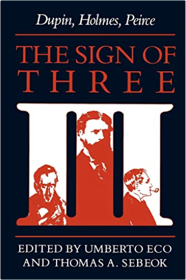
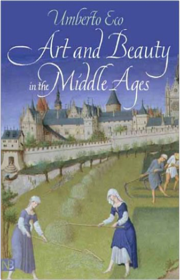
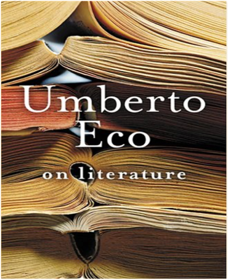
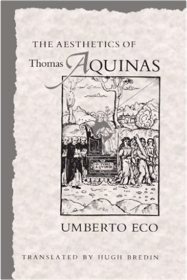
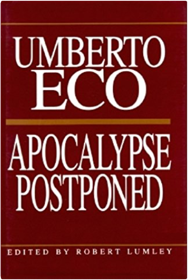
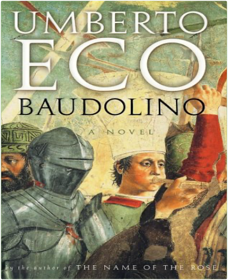
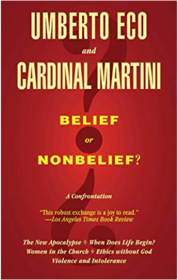

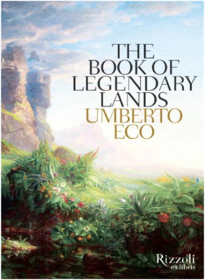
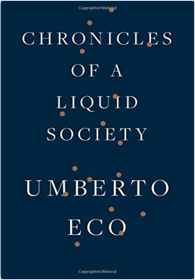
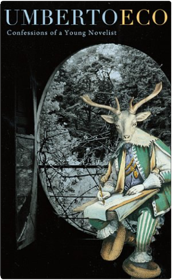
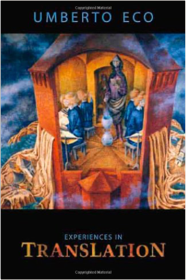
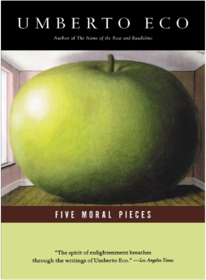
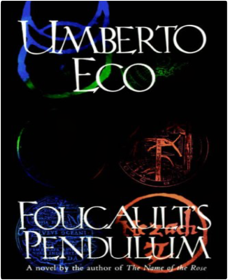
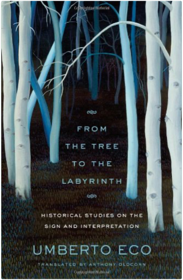
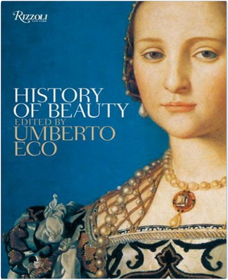
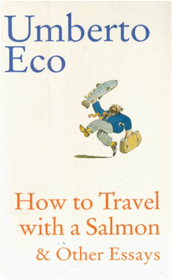
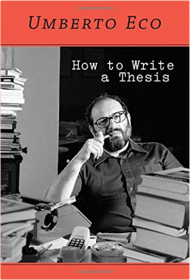
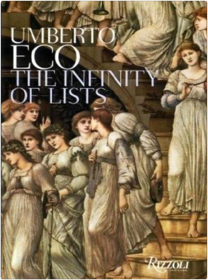
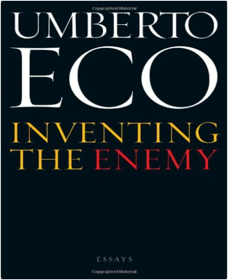
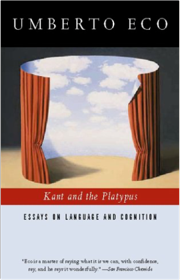
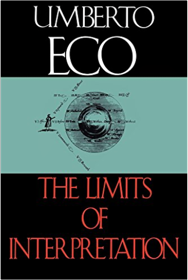
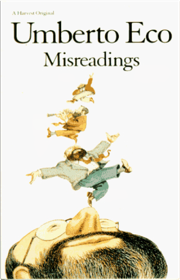
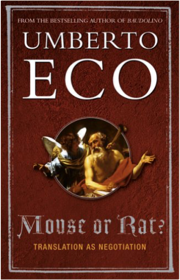
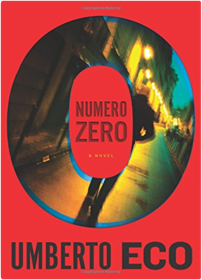
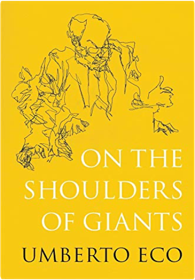
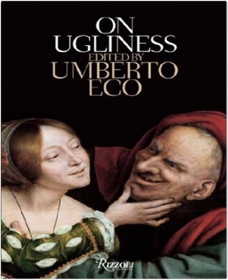
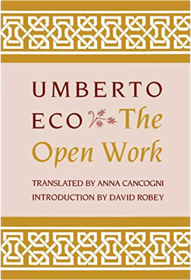
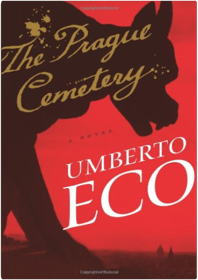
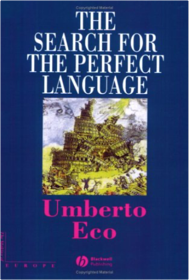
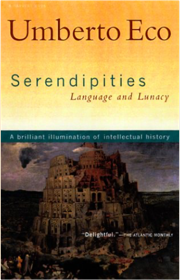
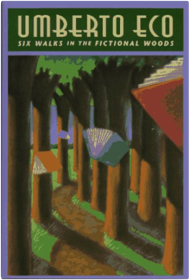
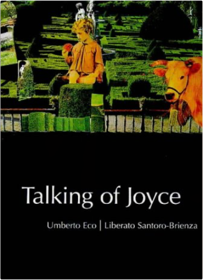
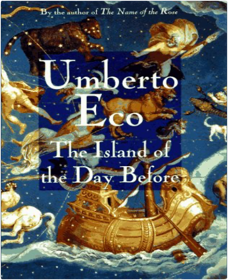
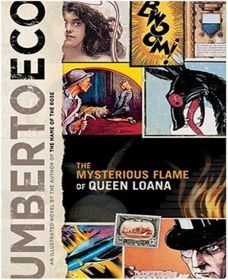
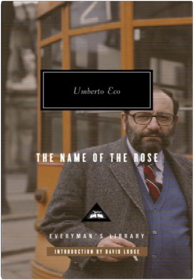
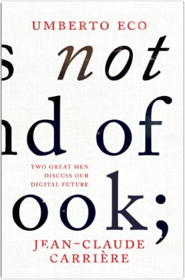
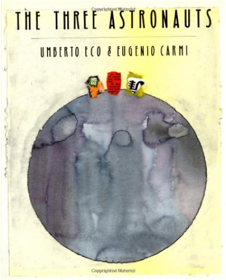
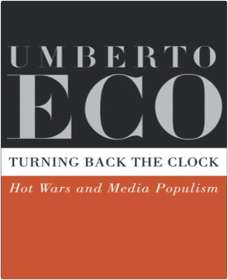
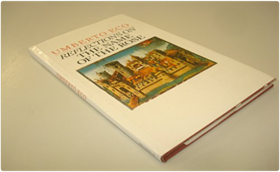
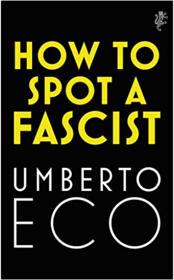
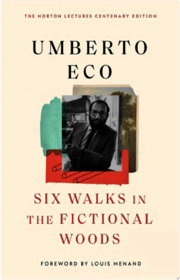
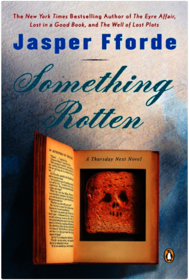
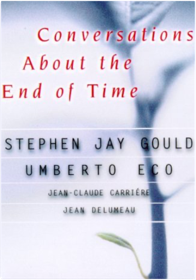
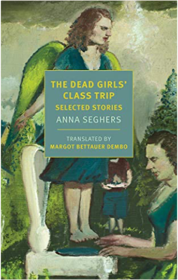




 Made with Delicious Library
Made with Delicious Library